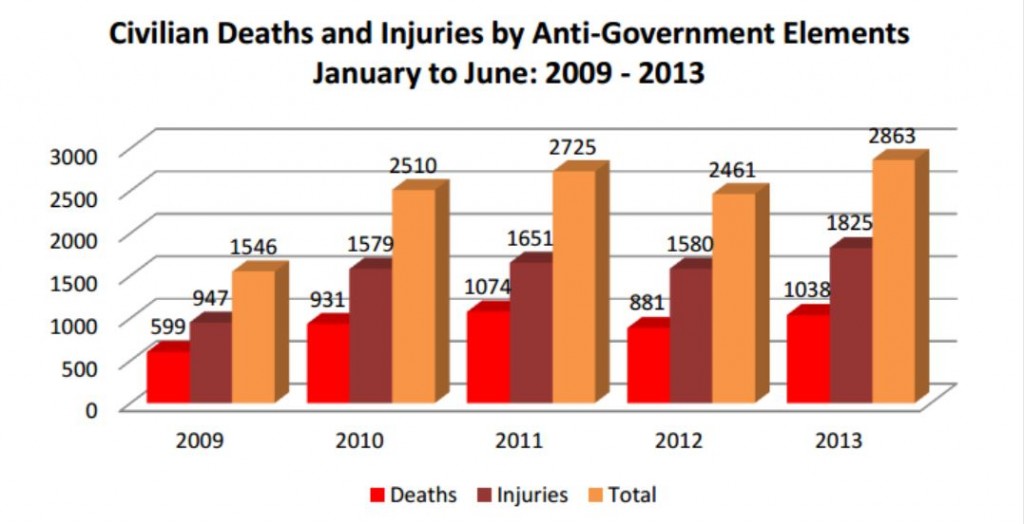Wait. Where Are These “Gains” NIE Says We Might Lose in Afghanistan?
The latest effort by War, Inc. to prolong the war in Afghanistan consists of a “leak” of the latest National Intelligence Estimate on Afghanistan. The Washington Post dutifully stepped up to transcribe the official line, bleating breathlessly in its headline “Afghanistan gains will be lost quickly after drawdown, U.S. intelligence estimate warns”. Since drawing down our troops closes the spigot feeding war profiteers, we just can’t consider leaving:
A new American intelligence assessment on the Afghan war predicts that the gains the United States and its allies have made during the past three years are likely to have been significantly eroded by 2017, even if Washington leaves behind a few thousand troops and continues bankrolling the impoverished nation, according to officials familiar with the report.
And if we leave faster, Afghanistan will go to hell faster, according to our Intelligence Oracles:
The report predicts that Afghanistan would likely descend into chaos quickly if Washington and Kabul don’t sign a security pact that would keep an international military contingent there beyond 2014 — a precondition for the delivery of billions of dollars in aid that the United States and its allies have pledged to spend in Afghanistan over the coming years.
As I have long maintained, however, virtually all claims of “progress” in Afghanistan come more from a process of gaming the numbers than any real calming of the country. Consider this post from June of 2012. Note from the figure in that post that violence in Afghanistan varies greatly with the season, but that the peak level of violence increased steadily from 2006 through 2011. I intended to go back to this same source to see how the subsequent years look on the graph, but it appears that these particular reports are no longer published for the general public.
The UN does still release reports on its collection of data regarding protection of civilians in Afghanistan. Noting that the current claim regarding the “success” of the surge in Afghanistan is that it managed to “reverse the Taliban’s momentum and give the government more of an edge”, consider the latest data on civilian deaths that the UN ascribes to anti-government elements in Afghanistan:
Perhaps, if we consider only deaths, an argument can be made that the rate of increase of deaths has been slowed, but there certainly is no basis for claiming that there is a trend to fewer deaths.
Lurking beneath this dire warning in the NIE is a tacit admission that the $50 billion that the US has spent to train and arm Afghan security forces has been a total waste, since the ANSF will not be able to maintain security once we are gone.
The bottom line is that the entire US war machinery has failed in every single facet of the effort in Afghanistan. Our presence has accomplished nothing but death, destruction and the wasting of nearly a trillion dollars. Our leaving will see further death and destruction. Staying longer would make no difference other than continuing to enrich War, Inc. There are no good options left, but getting our troops out at least stops the hemorrhaging of money.

